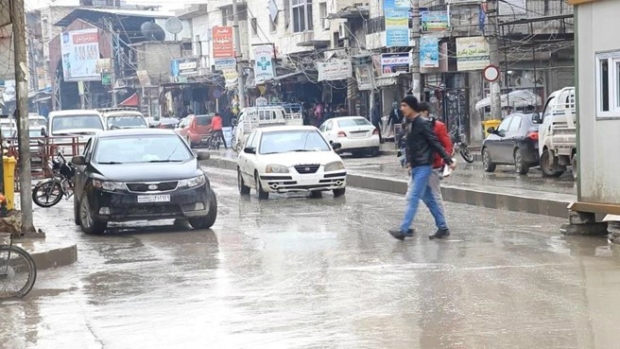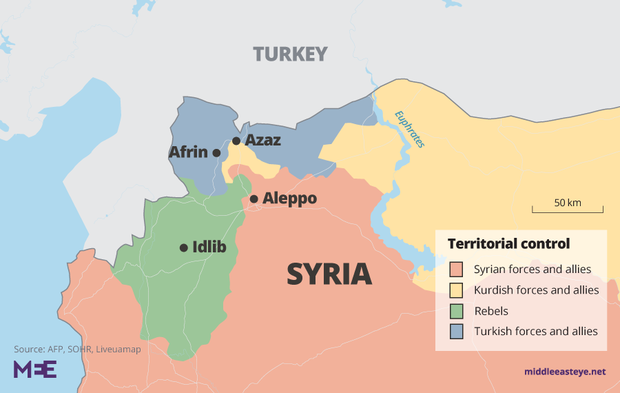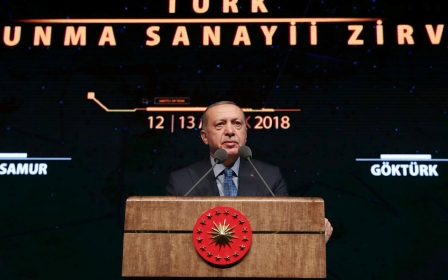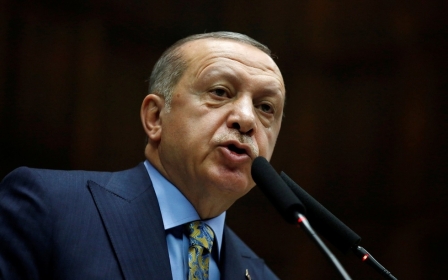Syrian army claims of Manbij presence denied by residents and US-led coalition
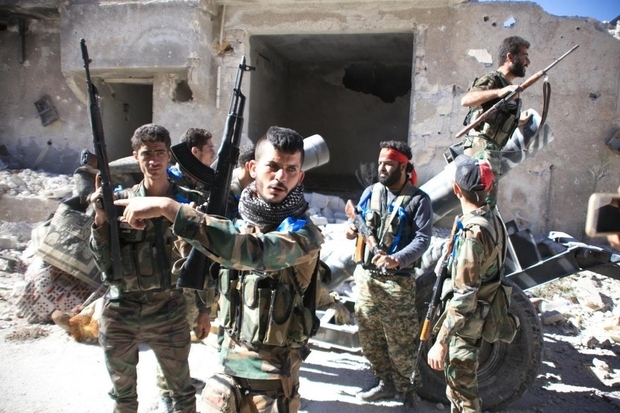
Syrian government forces say they have entered Manbij in the north of the country after an appeal from a Syrian Kurdish militia to take control of the city, though this has been denied by local residents and the US military operating in the area.
The Kurdish People's Protection Units (YPG) announced on Friday morning that they had invited President Bashar al-Assad's forces into the flashpoint city to ward off an impending Turkish assault, with a Syrian army spokesman then saying troops had entered Manbij for the first time in six years.
Assad lost control of Manbij in 2012, and the city has subsequently been controlled at different times by Syrian rebels, the Islamic State group (IS) and most recently the YPG.
The Syrian army spokesman said the national flag had been raised in the city, which lies about 30km south of the Turkish border and where US-led coalition forces are stationed.
The army was quoted as saying it "guarantees full security for all Syrian citizens and others present" in Manbij.
However the US-led coalition denied that Syrian government forces had taken control of the city, saying in a tweet that it "has seen no indication that these claims are true".
Similarly, several Manbij residents told Middle East Eye that they had seen no evidence of a Syrian army presence.
Khaled Sanbbagh, 36, said: "I have passed through the city's main streets and municipal buildings, everything is the same, no regime's flag, troops or any unusual movement, as Assad's media has advertised."
Shop owner Saleem said: "Life is normal in the city. Despite the rumours and the potential of war at any time, nothing yet has changed on the ground.
"We have been worried since Turkey announced it would enter the city. However, nothing major yet has happened on the ground, people still are practicing their normal daily routine."
With the YPG at its forefront, the US-backed Syrian Democratic Forces (SDF) militia seized Manbij in 2016 from IS, a milestone in the international coalition's battle against the group.
The Manbij Military Council, fighters allied to the SDF, hold the city, which lies on a front with Turkey-backed rebels.
The Syrian Observatory for Human Rights, a UK-based activist group, said Syrian government forces had arrived in the area and deployed in an area between the Manbij Military Council and Turkish forces.
The main Turkey-backed Syrian rebel force said on Friday that its convoys, along with Turkish forces, were moving towards the frontlines with Manbij, in "full readiness... to start military operations to liberate" the town, Reuters news agency reported.
YPG appeal
Earlier on Friday, the YPG, which Turkey regards as a terrorist group and has vowed to crush, had appealed for Syrian troops to protect the city.
The YPG said its fighters had previously withdrawn from Manbij to fight IS in eastern Syria.
"So we invite the Syrian government which we belong to... to send its armed forces to take over these positions and protect Manbij in the face of Turkish threats," a YPG statement said.
US President Donald Trump's abrupt decision last week to pull out about 2,000 US troops, whose presence has deterred Turkey, has alarmed the SDF, which controls much of northern and eastern Syria.
'Psychological war'
Ahmad al-Mohammad, a displaced human rights activist at the Syria Institute for Justice based in Gaziantep, also told MEE that Syrian troops had not entered Manbij.
"I reject all the recently published news that the regime has entered the city of Manbij," said Mohammad.
"The regime's aim of entering the area is to raise tensions with the FSA [Free Syrian Army rebels] and SDF to push for war, which was averted following an agreement between the US and Turkey, who are responsible for arranging the removal of the YPG from the city.
"What the regime is trying to do is to advertise itself as a major faction that can do whatever it wants, as well as protect the Kurds, who are a minority, showing it is willing to defend them against the Turkish invasion, which is only for media consumption."
Ahmad al-Rahal, a colonel and military analyst based in Turkey, also said that no Syrian troops had entered the city.
The colonel told MEE: "The psychological war is what is the regime is playing at the moment, same as what happened before in Afrin, which is what the regime is desperately trying to imitate.
"The major factions on the ground have agreed to apply a plan for Turkey to enter Manbij, which was approved by the US, Russia and Turkey. What the regime is trying to do is to toy mentally with Turkey and the rest of the world."
Turkish response
Turkish President Recep Tayyip Erdogan also said Assad's regime was running a "psychological" operation in relation to Manbij.
"We know that Syria is in a psychological action. We know that there is a situation like waving their own [regime] flag there. But there is nothing definite there yet," he told reporters after Friday prayers in Istanbul.
Erdogan said that Turkey will have nothing left to do in Manbij once "terrorist groups" leave the area and signalled that Ankara was not in a hurry to carry out its expected operation against the YPG.
"We are against the partitioning of Syria. Our goal is terrorist groups leaving there. If the groups leave, then there is no job left for us," he said.
"It's not just about Manbij, we are aiming to wipe out all terrorist organisations in the region. Our main target is that the YPG takes the necessary lesson here."
In a statement, Turkey's defence ministry said: "We warn all parties to stay away from provocative actions and rhetoric that will make the region more unstable.
"YPG/PKK terrorist organisation that controls the region by force does not have the right and the authority to make a statement and invite other elements on behalf of people in the region."
The ministry said it was closely monitoring the situation.
Russia, a staunch ally of Assad in the Syrian conflict, said it welcomed the return of Kurdish territories in Syria to the control of Assad's government.
"This is a positive trend," Kremlin spokesman Dmitry Peskov told a conference call.
Zouhir al-Shimale contributed to this report
New MEE newsletter: Jerusalem Dispatch
Sign up to get the latest insights and analysis on Israel-Palestine, alongside Turkey Unpacked and other MEE newsletters
Middle East Eye delivers independent and unrivalled coverage and analysis of the Middle East, North Africa and beyond. To learn more about republishing this content and the associated fees, please fill out this form. More about MEE can be found here.


